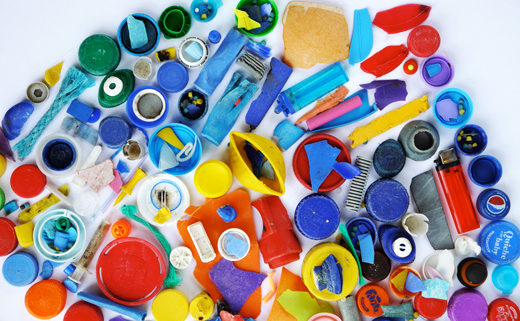Our oceans could soon contain as much plastic as fish
If no action is taken to address the growing waste issue in developing countries, the volume of plastic in the ocean could equal the volume of fish, according to the Ocean Conservancy. Rapidly growing consumption rates among the rising middle classes in developing countries, combined with low recycling rates, is set to create an exponential rise in plastic waste. In addition to harming the marine environment (and eventually entering the food chain), ocean plastic waste may also damage the livelihoods of fishermen and adversely affect tourism.
There are currently estimated to be around 800m tonnes of fish in the oceans and 100m to 150m tonnes of plastic. This is increasing by around 20m tonnes a year, but that growth is expected to accelerate quickly as more people are able to afford products that are made with, or packaged in, plastic, reports the Guardian.
So who should take action to address this challenge?
According to Andreas Merkl, Ocean Conservancy’s CEO, it’s government and the private sector that should step up to the plate. The circular economy presents a strong option for tackling waste – turning it into raw materials for new products. Business leaders and policymakers, across the developed and developing world, will need to collaborate to make progress. And companies will also need to gain deeper visibility of their supply chains.
Merkl believes it’s vital to get to grips with the economics of waste collection and recycling – in particular, it must be made worthwhile to recycle plastics currently perceived as ‘low value’. He highlights that it’s not as simple as banning plastics such as cellophane, as they play a huge role in expanding access to food and clean water in developing countries.
While improving collection and recycling is the quickest way to drive change, there’s also a significant opportunity for plastics companies and consumer goods firms to simplify the types of plastics they use, design smarter packaging and help close the loop on plastic waste.
“We’re increasingly partnering with businesses to help them incorporate more recycled plastic into their products and packaging,” explains Nigel Hunton. “Giving end-of-life plastics a new lease of life helps to reduce the risk of plastic waste reaching the oceans. It also provides manufacturers with a means of making more sustainable products.”
Fortunately, the issue is starting to rise up the political agenda, according to Merkl, helped by disturbing images of marine debris and reports that plastic waste may be finding its way into the food chain. There are also plans afoot to research collection and recycling trends. For example, the Trash Free Seas Alliance is planning to carry out detailed studies in several countries, with a particular emphasis on Asia, to build an accurate picture of the situation and assess opportunities for action.

